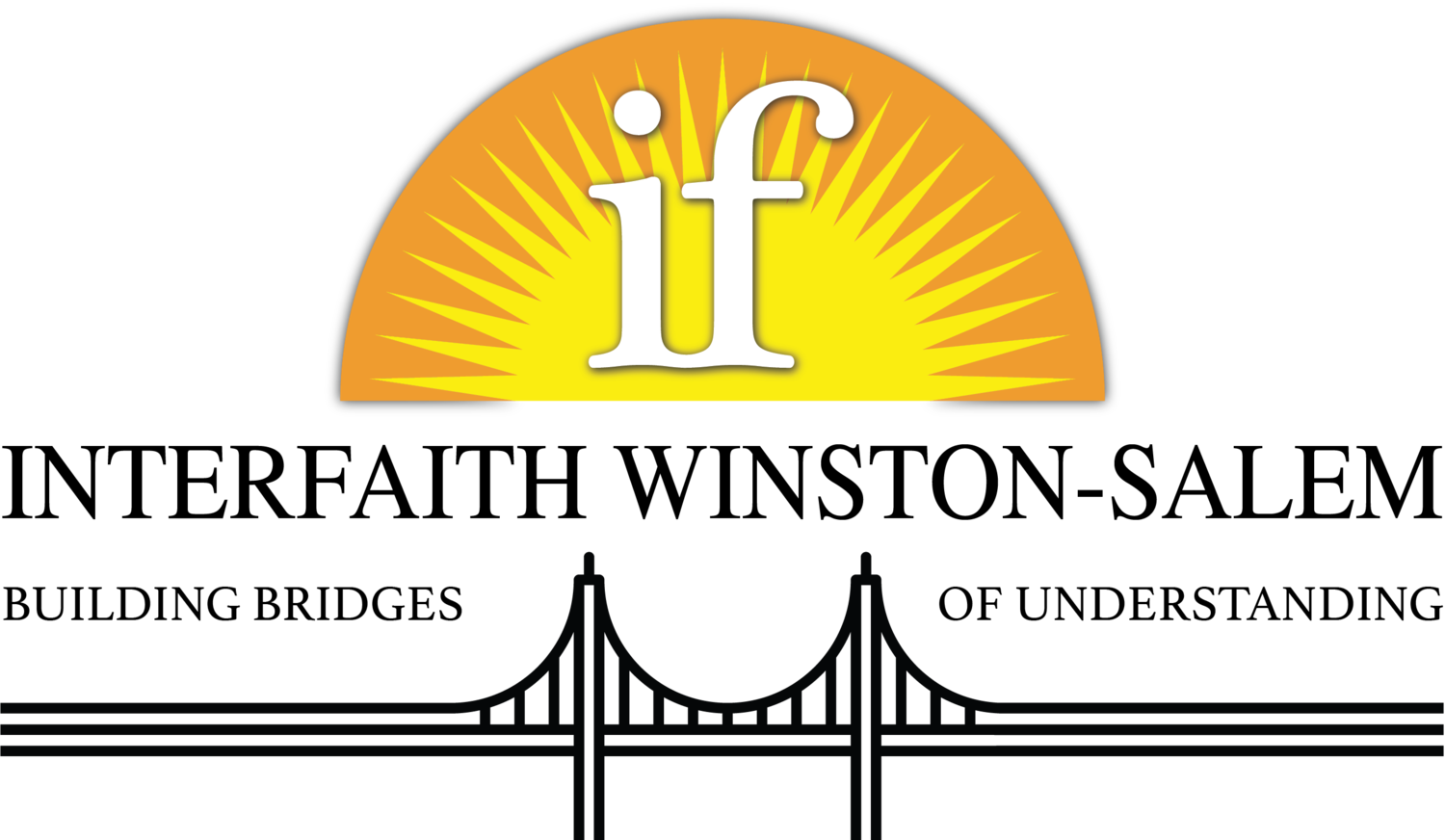Interfaith Winston Salem - History
Some would say that we haven’t been around long enough to have a history. But, at least we have a past. Interfaith Winston-Salem is a product of evolution. We’re not what we started out to be. And, what we are now probably is not what we will become. We hope we will be stronger and more relevant as we move forward.
A question posed and an answer ventured in the summer of 2011 provided the initial impetus. Jerry McLeese and Jim Collins were members of a small group – 10-12 men and women – at Ardmore United Methodist Church that dared to ask questions and seek answers about the history and interpretation of church doctrines and traditions. They also studied other faith traditions. Discussions were so spirited that the two men wanted to involve more people. Jim suggested that the class move beyond itself and the church building to offer studies and sponsor lectures in the community.
Jerry circulated a short proposal to two former United Methodist ministers – Russ Moxley in Greensboro and Kirk McNeill in Pembroke. They offered their encouragement. Russ suggested establishing a Lay Academy, an appropriate name for the Christian studies. Then, Rollin Russell of the North Carolina Council of Churches suggested that it be interfaith, and Truman Dunn of Messiah Moravian noted that the “lay” should be dropped.
Tom Richie of the Anderson (S.C.) School of Theology for Laypersons and Steve Vance of the Greenville (S.C.) Interfaith Forum provided valuable structural recommendations. Mark Sills, retired director of FaithAction House International in Greensboro, shared the vision of creating a virtual university. Rollin Russell, formerly of the N.C. Council of Churches, suggested that interfaith understanding was a challenge for the future. Darryl Aaron, pastor at First Baptist Church-Highland Avenue in Winston-Salem, made a direction-changing idea: “You need to address the heart as well as the head.”
After suggestions and comments by more than 80 people, the evolved concept was ready to be given
organizational shape. On January 19, 2012, 75 people were invited to help determine the operating structure. Twenty-four individuals representing 12 faith traditions responded and participated in breakout sessions led by Nelly van Doorn-Harder (Lutheran), Imam Khalid Griggs (Muslim), John Bost (Assembly of God), James Stoertz (Judeo-Christian), Laura Barclay (Baptist), Andrew Ettin (Jewish) and Bob Sawyer (Moravian).
Following guidance from the breakout sessions, a Leadership Team was created to handle operational issues with one Initiator and four teams with multiple facilitators: Initiator -- Jerry McLeese (United Methodist) Curriculum – Eric Greaux (Baptist), Karen Salim (Muslim), Dalia Deane (Hindu/Vedanta) Special Events – Ibrahim Thompson (Muslim), Ken Meyers (Baptist), Kirk McNeill (United Methodist) Communication/Systems – James Stoertz, Laura Barclay (Baptist), Richard Cassidy (Christ Follower) Legal/Financial – James Collins (United Methodist), Thomas Cannady (United Methodist)
The four teams began developing plans and materials. Interfaith Winston-Salem was incorporated in
February 2012 as a North Carolina nonprofit. A pool of potential board members was developed from which a diverse group could be assembled into the initial Board of Guidance. The first board meeting was held May 10, 2012 with nine members from Jewish, Muslim, Christian, Hindu, Buddhist, Secular Humanist and Religious Humanist traditions.
We received notification August 7, 2012 that the Internal Revenue Service has accorded tax-exempt status under section 501(c)(3) of the Internal Revenue Code. Contributions to Interfaith Winston-Salem from February 23, 2012, are tax-deductible.
In December 2012, the Board of Guidance approved an initiative to have Interfaith Winston-Salem work to have the City of Winston-Salem join the International Campaign for Compassionate Cities movement. After months of background efforts by board members, Mayor Allen Joines and members of Winston-Salem's City Council unanimously endorsed the Charter for Compassion in July 2013. The City of Winston-Salem in August 2013 officially became the 18th city in the world to endorse the Charter for Compassion and join the movement.
In 2015 we began collaborating with Valerie Glass to investigate the concept of restorative justice. Valerie saw a great need in our community and especially within local schools. We worked with her to build community support, and in December 2016 Triad Restorative Justice was incorporated as a separate non-profit organization in North Carolina.


